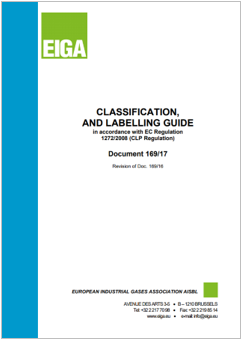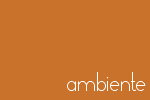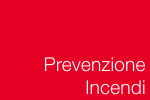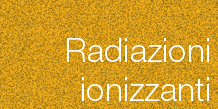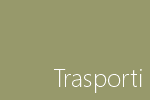| 1 x afterRenderRawModule mod_menu (Temi) (291.1KB) (13.89%) | 40.69ms |
| 1 x afterInitialise (3.44MB) (10.46%) | 30.64ms |
| 1 x afterRenderRawModule mod_menu (Main Menu) (21.79KB) (10.32%) | 30.22ms |
| 1 x After Access::preloadPermissions (com_content) (16.82MB) (9.88%) | 28.95ms |
| 1 x Before Access::getAssetRules (id:8 name:com_content) (493.39KB) (9.5%) | 27.84ms |
| 1 x afterRender (768.2KB) (8.4%) | 24.59ms |
| 1 x afterRenderComponent com_content (86.96KB) (6.94%) | 20.34ms |
| 1 x beforeRenderRawModule mod_login (Accedi all'area riservata) (1.75MB) (4.23%) | 12.39ms |
| 1 x afterRoute (362.24KB) (3.71%) | 10.87ms |
| 1 x afterRenderRawModule mod_articles_categories (Chemicals) (359.6KB) (3.17%) | 9.29ms |
| 1 x afterRenderRawModule mod_menu (Documenti Abbonati) (179.28KB) (2.21%) | 6.46ms |
| 1 x afterRenderRawModule mod_menu (Top Menu) (31.08KB) (1.55%) | 4.55ms |
| 1 x afterRenderRawModule mod_menu (Policies) (23.48KB) (1.49%) | 4.38ms |
| 1 x afterRenderRawModule mod_menu (Marketing) (20.39KB) (1.29%) | 3.77ms |
| 1 x afterLoad (86.29KB) (1.21%) | 3.54ms |
| 1 x beforeRenderRawModule mod_menu (Main Menu) (33.91KB) (1.18%) | 3.47ms |
| 1 x afterRenderRawModule mod_menu (Store) (17.13KB) (1.14%) | 3.35ms |
| 1 x afterRenderRawModule mod_menu (Social) (60.12KB) (1.09%) | 3.20ms |
| 1 x afterRenderRawModule mod_menu (Media) (14.41KB) (0.93%) | 2.74ms |
| 1 x afterRenderRawModule mod_login (Accedi all'area riservata) (67.16KB) (0.84%) | 2.47ms |
| 1 x afterRenderRawModule mod_menu (Info) (11.67KB) (0.75%) | 2.19ms |
| 1 x Before Access::preloadComponents (all components) (34.22KB) (0.52%) | 1.51ms |
| 1 x beforeRenderComponent com_content (37.88KB) (0.43%) | 1.25ms |
| 1 x Before Access::getAssetRules (id:1000685 name:com_attachments) (9.97KB) (0.33%) | 961μs |
| 1 x afterRenderModule mod_menu (Main Menu) (11.27KB) (0.2%) | 591μs |
| 1 x afterRenderModule mod_articles_categories (Chemicals) (10.5KB) (0.19%) | 554μs |
| 1 x Before Access::getAssetRules (id:11231 name:com_content.article.5129) (514.65KB) (0.18%) | 532μs |
| 1 x afterRenderModule mod_menu (Policies) (3.3KB) (0.18%) | 518μs |
| 1 x afterRenderModule mod_menu (Store) (3.3KB) (0.18%) | 516μs |
| 1 x afterRenderModule mod_menu (Media) (4.36KB) (0.17%) | 512μs |
| 1 x afterRenderRawModule mod_custom (Certifico s.r.l.) (4.22KB) (0.17%) | 512μs |
| 1 x afterRenderModule mod_custom (Certifico s.r.l.) (3.36KB) (0.17%) | 509μs |
| 1 x afterRenderModule mod_menu (Documenti Abbonati) (3.94KB) (0.17%) | 509μs |
| 1 x afterRenderModule mod_menu (Social) (3.92KB) (0.17%) | 507μs |
| 1 x afterRenderModule mod_menu (Marketing) (3.3KB) (0.17%) | 505μs |
| 1 x After Access::preloadComponents (all components) (115.88KB) (0.17%) | 498μs |
| 1 x afterRenderModule mod_menu (Info) (3.05KB) (0.17%) | 496μs |
| 1 x afterRenderModule mod_menu (Temi) (22.67KB) (0.17%) | 492μs |
| 1 x afterRenderModule mod_custom (Titolo "Chemicals") (2.67KB) (0.17%) | 487μs |
| 1 x beforeRenderRawModule mod_menu (Social) (39.6KB) (0.14%) | 416μs |
| 1 x afterDispatch (3.06KB) (0.13%) | 376μs |
| 1 x afterRenderModule mod_login (Accedi all'area riservata) (5.95KB) (0.11%) | 316μs |
| 1 x After Access::getAssetRules (id:11231 name:com_content.article.5129) (12.67KB) (0.08%) | 238μs |
| 1 x afterRenderModule mod_custom (Regolamento Macchine) (7.58KB) (0.06%) | 185μs |
| 1 x afterRenderRawModule mod_custom (Regolamento Macchine) (1.03KB) (0.04%) | 117μs |
| 1 x afterRenderRawModule mod_custom (Titolo "Chemicals") (992B) (0.04%) | 115μs |
| 1 x afterRenderRawModule mod_custom (DM 21 Marzo 1973 | MOCA IT) (1.03KB) (0.03%) | 93μs |
| 1 x afterRenderRawModule mod_custom (D. Lgs. 81/2008 - TUSSL) (928B) (0.03%) | 90μs |
| 1 x afterRenderRawModule mod_custom (TUSSL / Link) (976B) (0.03%) | 89μs |
| 1 x afterRenderRawModule mod_custom (Glossario Certifico HSE) (1.03KB) (0.03%) | 89μs |
| 1 x afterRenderRawModule mod_custom (CEM4 || Ultimo aggiornamento) (1.03KB) (0.03%) | 87μs |
| 1 x afterRenderRawModule mod_custom (D. Lgs. 231/2001 - Responsabilità amministrativa enti) (960B) (0.03%) | 87μs |
| 1 x afterRenderRawModule mod_custom (D. Lgs. 196/2003 - Codice protezione dati personali | GDPR) (960B) (0.03%) | 87μs |
| 1 x afterRenderRawModule mod_custom (D. Lgs. 101/2020 - Protezione esposizione radiazioni ionizzanti) (960B) (0.03%) | 87μs |
| 1 x afterRenderRawModule mod_custom (Codice Prevenzione Incendi | RTO II) (928B) (0.03%) | 87μs |
| 1 x afterRenderRawModule mod_custom (TUA | Testo Unico Ambiente) (928B) (0.03%) | 86μs |
| 1 x afterRenderRawModule mod_custom (MOCA - GMP | Consolidato) (1.03KB) (0.03%) | 86μs |
| 1 x afterRenderRawModule mod_custom (Codice Unico Sicurezza) (928B) (0.03%) | 86μs |
| 1 x afterRenderRawModule mod_custom (Store Certifico) (976B) (0.03%) | 86μs |
| 1 x afterRenderRawModule mod_custom (MEPA) (960B) (0.03%) | 86μs |
| 1 x afterRenderRawModule mod_custom (Abbonamento Full) (912B) (0.03%) | 86μs |
| 1 x afterRenderRawModule mod_custom (Direttiva macchine e norme armonizzate) (1.05KB) (0.03%) | 85μs |
| 1 x afterRenderRawModule mod_custom (Certifico ADR) (1.02KB) (0.03%) | 85μs |
| 1 x afterRenderRawModule mod_custom (Abbonamento Full Plus) (912B) (0.03%) | 85μs |
| 1 x afterRenderRawModule mod_custom (Food Safety book) (1.02KB) (0.03%) | 85μs |
| 1 x afterRenderModule mod_menu (Top Menu) (4.11KB) (0.03%) | 82μs |
| 1 x afterRenderModule mod_custom (D. Lgs. 81/2008 - TUSSL) (4.02KB) (0.03%) | 74μs |
| 1 x afterRenderModule mod_custom (Codice Unico Sicurezza) (4.02KB) (0.03%) | 74μs |
| 1 x afterRenderModule mod_custom (TUA | Testo Unico Ambiente) (4.03KB) (0.02%) | 71μs |
| 1 x afterRenderModule mod_custom (Codice Prevenzione Incendi | RTO II) (4.16KB) (0.02%) | 71μs |
| 1 x afterRenderModule mod_custom (Glossario Certifico HSE) (3.77KB) (0.02%) | 70μs |
| 1 x afterRenderModule mod_custom (D. Lgs. 231/2001 - Responsabilità amministrativa enti) (4.42KB) (0.02%) | 70μs |
| 1 x afterRenderModule mod_custom (D. Lgs. 196/2003 - Codice protezione dati personali | GDPR) (4.44KB) (0.02%) | 70μs |
| 1 x afterRenderModule mod_custom (DM 21 Marzo 1973 | MOCA IT) (4.03KB) (0.02%) | 70μs |
| 1 x afterRenderModule mod_custom (Abbonamento Full Plus) (15.14KB) (0.02%) | 70μs |
| 1 x afterRenderModule mod_custom (Abbonamento Full) (4.89KB) (0.02%) | 69μs |
| 1 x afterRenderModule mod_custom (D. Lgs. 101/2020 - Protezione esposizione radiazioni ionizzanti) (4.44KB) (0.02%) | 69μs |
| 1 x afterRenderModule mod_custom (TUSSL / Link) (3.64KB) (0.02%) | 68μs |
| 1 x afterRenderModule mod_custom (CEM4 || Ultimo aggiornamento) (3.91KB) (0.02%) | 68μs |
| 1 x afterRenderModule mod_custom (Direttiva macchine e norme armonizzate) (4.16KB) (0.02%) | 68μs |
| 1 x afterRenderModule mod_custom (Certifico ADR) (3.89KB) (0.02%) | 68μs |
| 1 x afterRenderModule mod_custom (MOCA - GMP | Consolidato) (4.02KB) (0.02%) | 68μs |
| 1 x afterRenderModule mod_custom (Store Certifico) (3.58KB) (0.02%) | 67μs |
| 1 x afterRenderModule mod_custom (MEPA) (3.75KB) (0.02%) | 67μs |
| 1 x afterRenderModule mod_custom (Food Safety book) (4.02KB) (0.02%) | 66μs |
| 1 x beforeRenderRawModule mod_menu (Top Menu) (2.56KB) (0.02%) | 49μs |
| 1 x After Access::getAssetRules (id:8 name:com_content) (11.51KB) (0.01%) | 42μs |
| 1 x After Access::getAssetRules (id:1000685 name:com_attachments) (10.59KB) (0.01%) | 28μs |
| 1 x beforeRenderRawModule mod_custom (Titolo "Chemicals") (2.2KB) (0.01%) | 26μs |
| 1 x beforeRenderRawModule mod_menu (Policies) (616B) (0.01%) | 24μs |
| 1 x beforeRenderRawModule mod_menu (Info) (440B) (0.01%) | 23μs |
| 1 x beforeRenderRawModule mod_custom (Certifico s.r.l.) (2.16KB) (0.01%) | 22μs |
| 1 x beforeRenderRawModule mod_menu (Documenti Abbonati) (1.96KB) (0.01%) | 22μs |
| 1 x beforeRenderRawModule mod_menu (Temi) (904B) (0.01%) | 22μs |
| 1 x Before Access::getAssetRules (id:1 name:root.1) (760B) (0.01%) | 15μs |
| 1 x Before Access::preloadPermissions (com_content) (1.51KB) (0%) | 14μs |
| 1 x beforeRenderRawModule mod_custom (Regolamento Macchine) (9.7KB) (0%) | 11μs |
| 1 x beforeRenderRawModule mod_menu (Media) (912B) (0%) | 9μs |
| 1 x beforeRenderRawModule mod_articles_categories (Chemicals) (2.36KB) (0%) | 9μs |
| 1 x beforeRenderRawModule mod_menu (Store) (912B) (0%) | 8μs |
| 1 x beforeRenderRawModule mod_menu (Marketing) (896B) (0%) | 8μs |
| 1 x beforeRenderRawModule mod_custom (D. Lgs. 81/2008 - TUSSL) (9.5KB) (0%) | 7μs |
| 1 x beforeRenderRawModule mod_custom (Codice Prevenzione Incendi | RTO II) (2.25KB) (0%) | 6μs |
| 1 x beforeRenderRawModule mod_custom (DM 21 Marzo 1973 | MOCA IT) (1.63KB) (0%) | 6μs |
| 1 x beforeRenderRawModule mod_custom (Glossario Certifico HSE) (2.38KB) (0%) | 6μs |
| 1 x beforeRenderRawModule mod_custom (D. Lgs. 101/2020 - Protezione esposizione radiazioni ionizzanti) (2.72KB) (0%) | 6μs |
| 1 x beforeRenderRawModule mod_custom (Direttiva macchine e norme armonizzate) (1.27KB) (0%) | 6μs |
| 1 x beforeRenderRawModule mod_custom (MEPA) (2.05KB) (0%) | 6μs |
| 1 x After Access::getAssetRules (id:1 name:root.1) (1.28KB) (0%) | 5μs |
| 1 x beforeRenderRawModule mod_custom (TUA | Testo Unico Ambiente) (2.38KB) (0%) | 5μs |
| 1 x beforeRenderRawModule mod_custom (TUSSL / Link) (1.48KB) (0%) | 5μs |
| 1 x beforeRenderRawModule mod_custom (CEM4 || Ultimo aggiornamento) (2KB) (0%) | 5μs |
| 1 x beforeRenderRawModule mod_custom (D. Lgs. 231/2001 - Responsabilità amministrativa enti) (2.09KB) (0%) | 5μs |
| 1 x beforeRenderRawModule mod_custom (D. Lgs. 196/2003 - Codice protezione dati personali | GDPR) (2.22KB) (0%) | 5μs |
| 1 x beforeRenderRawModule mod_custom (Certifico ADR) (2.77KB) (0%) | 5μs |
| 1 x beforeRenderRawModule mod_custom (MOCA - GMP | Consolidato) (2.5KB) (0%) | 5μs |
| 1 x beforeRenderRawModule mod_custom (Codice Unico Sicurezza) (2.25KB) (0%) | 5μs |
| 1 x beforeRenderRawModule mod_custom (Abbonamento Full) (2.39KB) (0%) | 5μs |
| 1 x beforeRenderRawModule mod_custom (Abbonamento Full Plus) (2.38KB) (0%) | 5μs |
| 1 x beforeRenderRawModule mod_custom (Food Safety book) (2.52KB) (0%) | 5μs |
| 1 x beforeRenderRawModule mod_custom (Store Certifico) (3.27KB) (0%) | 4μs |
| 1 x beforeRenderModule mod_login (Accedi all'area riservata) (736B) (0%) | 3μs |
| 1 x beforeRenderModule mod_menu (Main Menu) (704B) (0%) | 2μs |
| 1 x beforeRenderModule mod_menu (Social) (704B) (0%) | 2μs |
| 1 x beforeRenderModule mod_menu (Info) (704B) (0%) | 2μs |
| 1 x beforeRenderModule mod_menu (Marketing) (704B) (0%) | 2μs |
| 1 x beforeRenderModule mod_menu (Media) (704B) (0%) | 2μs |
| 1 x beforeRenderModule mod_menu (Policies) (704B) (0%) | 2μs |
| 1 x beforeRenderModule mod_menu (Store) (704B) (0%) | 2μs |
| 1 x beforeRenderModule mod_custom (Certifico s.r.l.) (720B) (0%) | 2μs |
| 1 x beforeRenderModule mod_menu (Documenti Abbonati) (720B) (0%) | 2μs |
| 1 x beforeRenderModule mod_articles_categories (Chemicals) (704B) (0%) | 2μs |
| 1 x beforeRenderModule mod_menu (Temi) (704B) (0%) | 2μs |
| 1 x beforeRenderModule mod_menu (Top Menu) (704B) (0%) | 2μs |
| 1 x beforeRenderModule mod_custom (Codice Prevenzione Incendi | RTO II) (736B) (0%) | 1μs |
| 1 x beforeRenderModule mod_custom (TUSSL / Link) (720B) (0%) | 1μs |
| 1 x beforeRenderModule mod_custom (Regolamento Macchine) (720B) (0%) | 1μs |
| 1 x beforeRenderModule mod_custom (D. Lgs. 81/2008 - TUSSL) (720B) (0%) | 1μs |
| 1 x beforeRenderModule mod_custom (TUA | Testo Unico Ambiente) (736B) (0%) | 1μs |
| 1 x beforeRenderModule mod_custom (Glossario Certifico HSE) (720B) (0%) | 1μs |
| 1 x beforeRenderModule mod_custom (CEM4 || Ultimo aggiornamento) (736B) (0%) | 1μs |
| 1 x beforeRenderModule mod_custom (D. Lgs. 231/2001 - Responsabilità amministrativa enti) (752B) (0%) | 1μs |
| 1 x beforeRenderModule mod_custom (D. Lgs. 196/2003 - Codice protezione dati personali | GDPR) (768B) (0%) | 1μs |
| 1 x beforeRenderModule mod_custom (Direttiva macchine e norme armonizzate) (736B) (0%) | 1μs |
| 1 x beforeRenderModule mod_custom (Certifico ADR) (720B) (0%) | 1μs |
| 1 x beforeRenderModule mod_custom (MOCA - GMP | Consolidato) (736B) (0%) | 1μs |
| 1 x beforeRenderModule mod_custom (Codice Unico Sicurezza) (720B) (0%) | 1μs |
| 1 x beforeRenderModule mod_custom (DM 21 Marzo 1973 | MOCA IT) (736B) (0%) | 1μs |
| 1 x beforeRenderModule mod_custom (Abbonamento Full) (720B) (0%) | 1μs |
| 1 x beforeRenderModule mod_custom (Abbonamento Full Plus) (720B) (0%) | 1μs |
| 1 x beforeRenderModule mod_custom (Store Certifico) (720B) (0%) | 1μs |
| 1 x beforeRenderModule mod_custom (Food Safety book) (720B) (0%) | 1μs |
| 1 x beforeRenderModule mod_custom (Titolo "Chemicals") (720B) (0%) | 1μs |
| 1 x beforeRenderModule mod_custom (D. Lgs. 101/2020 - Protezione esposizione radiazioni ionizzanti) (768B) (0%) | 0μs |
| 1 x beforeRenderModule mod_custom (MEPA) (704B) (0%) | 0μs |
